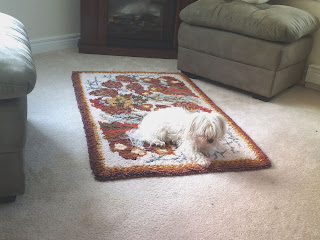Words matter! How we speak to another, regardless of their place in our immediate sphere determines how they will react and respond to us.
When interacting with very young children, the words we use are tailored to the notion of ‘age appropriateness’ and the listener’s ability to comprehend. Talking ‘down’ to children has potential to be demoralizing and defeating and as a consequence is not instructive. Parents brought their son or daughter into the world and now that the little people are here, the adults in the room have another role — that of teacher. A parent with a sound moral compass is able to effectively teach children right from wrong, so that a son and daughter may take their place in their community and in the broader society. Then, those young people venture forth to their first real job with real earning power, often in the food service industry. Then something horrible happens. They get screamed at for doing their job.
In this age of COVID denialism, mask defiance and vaccine defiance, what are far too many adults, Moms and Dads, really teaching their children? Is it fear that’s driving them to dismiss science, to ignore the law? Laws in place to protect all. That behaviour cannot stand without challenge. It must not stand without challenge.
Recent press has shone a light on just how out of touch with their moral compass so many people have become; supposedly mature adults, who have access to our roadways with lethal weapons, their vehicle, are screaming at restaurant wait staff claiming violation of their rights. Seriously! Those overly enraged people are in COVID shock, trapped in a rolling drum of emotions that they don’t know what to do with. With diminished coping skills, they jeopardize the health and safety of those around them who are trying to do the right things in spite of the turmoil.
Young people, as example, are working to pay for school, or just pay their way in life in general. The human brain isn’t fully developed until at least 25, so for men and women beyond that age screaming at children, yes children, is unacceptable no matter how those who do it try to spin it. COVID isn’t going away any time soon so it’s time for everyone who is eligible to get the vaccine so that life can get back to some semblance of normal, or at the very least, a ‘new normal’ that is kinder and gentler. The holiday season needs that peace.
Historically and sadly, holiday time brings out the very worst in some people and it’s the same angst year after year. Since COVID visited the world a few years ago, the anger meter of far too many is off the charts. It’s unfortunate and clearly unacceptable that their behaviour is doing potentially irreparable damage to those in their communities who are tasked with providing service or keeping citizens safe and healthy. Young people are the future. Have we forgotten that?
Step away from your self-serving ME and get to know the WE you used to be or could be. There are so many things that both young and old could be doing to lift their spirits. Being vaccinated provides us with more freedom of movement within the community to engage in activities we enjoy. It also opens the doors to new opportunities as the job/career landscape has changed during COVID times.
Food banks are scrambling to serve the food insecure and you can contribute to bending and perhaps breaking the back of that problem by donating your time and energy to such worthy causes. They get lots of peanut butter, jam and jelly, but they don’t get enough loaves of bread to put under it. English muffins, flat breads, pita breads are great alternatives that would be most welcome. Use your voice to spread the word about expanding contributions to food banks and other such venues whose mission is to ensure a better quality of health and wellness for those who are struggling and have done so for decades, long before COVID visited. When the lesser among us are healthier, all are healthier, making for a holiday time that’s less stressful and more meaningful. Raise a glass to yourself.
Carla MacInnis Rockwell is a freelance writer and disability rights advocate living outside Fredericton, NB with Miss Lexie, a rambunctious Maltese and Mr. Malcolm, a boisterous Havanese. She can be reached via email at Carla MacInnis Rockwell








